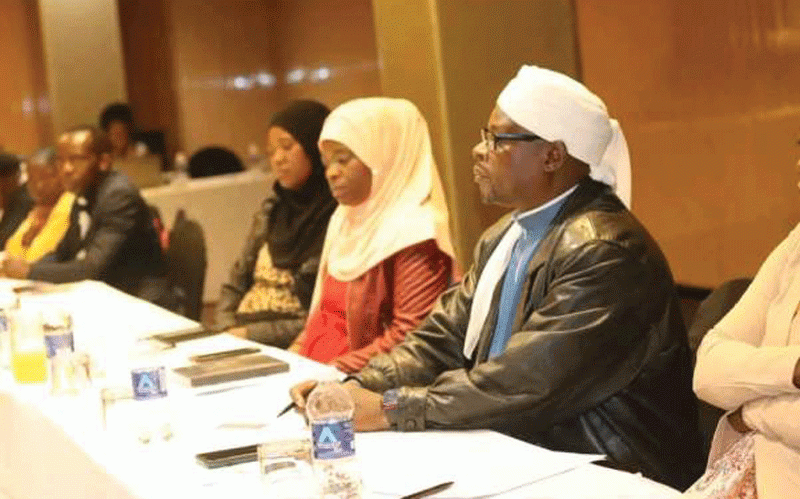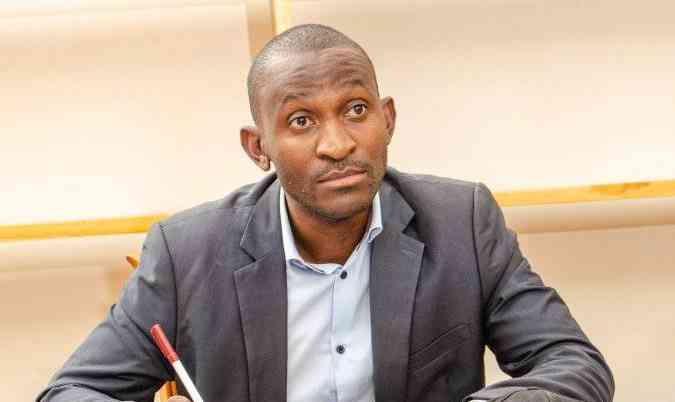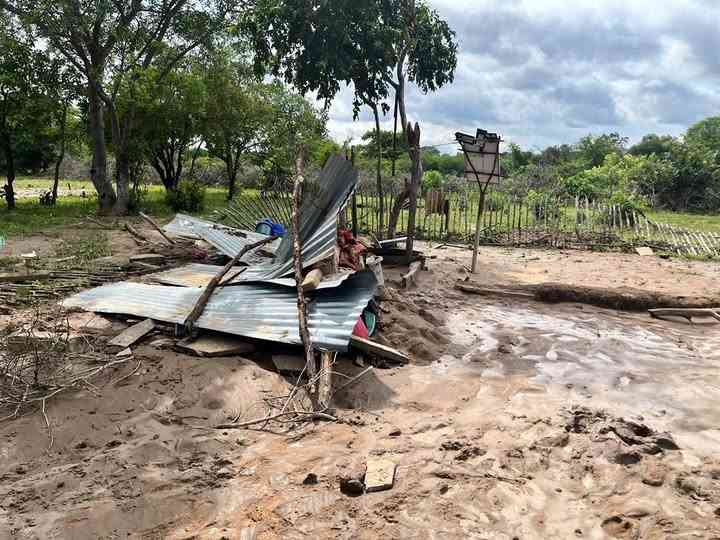
AFTER almost a decade of toiling in South African mines, Misheck Zhou* impelled by persistent cough and tiredness coupled withweight loss, decided to call it a day and returned to his rural home in Mberengwa in the Midlands province.
Zhou of Shopera village under Chief Nyamondo had joined his brothers and fellow villagers, who were lured by the power of the rand to work in mines and farms in South Africa.
A devout Mupostori, Zhou has not been well since he came back from South Africa four months ago.
Several visits to the local health centre, Matedzi Clinic, yielded nothing as his health kept deteriorating.
His family members even sought divine intervention, but this could not help either.
A relative eventually took him to Zvishavane where he was taken to the district hospital where Zhou was diagnosed with TB.
“It was after screening that I was diagnosed with TB,” he said.
“No one ever thought I had TB until I got tested.”
- WhaWha triumphs in the slugfest of wardens
- Zim headed for a political dead heat in 2023
- Bruised Gems get consolation win
- Veld fires ravage Beitbridge
Keep Reading
Zimbabweans who reside in South Africa contribute significantly to TB new cases recorded annually in the country.
The TB burden on South African mines has had a noticeable impact on the country as a result of migrant labour.
An estimated 1,5 million Zimbabweans live in South Africa, many of whom migrated as a result of the social and economic unrest in the country, according to the International Organisation for Migration.
“I dropped out of school while I was in Form 2 and followed my brothers who were in South Africa,” Zhou, who is now on TB treatment, said.
“I went to work at a mine in the Northern Cape where a fellow villager was employed.
“It was an open cast mine and we were exposed to lots of dust.”
Working conditions inside mines create a high-risk environment for TB transmission, resulting in part from silica dust exposure, which increases the risk of pulmonary TB, particularly in gold mines.
Southern Eye on Sunday has established that childhood TB is underdiagnosed and underreported, and care is often accessed too late, resulting in adverse treatment outcomes, especially in rural communities.
“My community is not aware of TB, they think it’s an old disease,” Zhou said.
“Even the people that we trust, the church leaders are ignorant.
“I hopped from one church to another, but no one spoke of TB.
“There is a very large gap in communities, particularly in rural areas.”
TB remains a public health emergency with 10 million people falling ill with the disease globally per year, according to the World Health Organisation.
Despite being a preventable and curable disease, 1,5 million people die from TB each year — making it the world's top infectious killer.
In Zimbabwe, 18 200 people fell ill with TB in 2022, with 242 cases of DR-TB being notified to the TB control programme.
As such, faith-based organisations and traditional leaders have been urged to use their influence on TB prevention given that they have historically played a significantly role in delivering health and social services in the country.
Stop TB Partnership’s community, rights and gender programme officer James Malah told religious and traditional leaders attending a TB engagement meeting recently that they played a critical role in ending TB.
He said their influence goes a long way in reaching all affected people with prevention, care and support.
“To really look from information dissemination to your religion, you have to raise awareness on TB and try to minimise the stigma making sure people understand that TB is curable and treatable,” he said.
“As traditional and religious leaders ensure that those that survive can come back and join others in community duties.”
Malah urged traditional and religious leaders to advocate for the increase in TB investment as well as political participation in the TB response.
Donald Tobaiwa, executive director of Jointed Hands Welfare Organisation (JHWO), a Gweru-based organisation that advocates for quality health services said religious and traditional leaders can use their influence in addressing poverty and social economic matters in the country.
“There is an association between TB and poverty,” he said.
“Traditional and religious leaders, therefore have to use their power to address poverty and the social economic challenges.”
He said undernutrition is an important risk factor for developing active TB, hence the need for traditional and religious leaders to explore ways of improving food security.
Tobaiwa said it was imperative for traditional leaders to be part of the Multisectoral a accountability framework for TB (MAF-TB).
Launched in January last year, the MAF-TB aims to support the effective accountability of government and all stakeholders in the country and to accelerate progress to end the tuberculosis epidemic.
The blueprint is aligned fully with the End TB Strategy and the 2030 Agenda for Sustainable Development.
“As important players in the TB response, traditional and religious leaders should be part of the MAF-TB so that you use your influence in communities in TB care and support.
Maxwell Kapachawo, the founder and national coordinator of the Zimbabwe Network of Religious Leaders Living or Personally Affected by HIV/Aids said churches play a critical role in curbing diseases.
“I am talking from my experience and I know the influence that the church has in curbing disease,” he said.
“Leaders in churches are gatekeepers in communities and have influence which can help in the TB response.
“When l first disclosed my HIV status it was the church that accepted me, supported me in all ways.”
Representatives from the Muslim community said the Imam or Sheikh (leaders) have great reach in the country, hence the need to take influence.
It is estimated that the Muslim population in the country is more than 1,2 million people with more than 1328 mosques across the country.
Zimbabwe National Traditional Healers Association representative and herbalist Doreen Badze said they complement programmes meant to curb diseases like TB.
“I am a coming from a nursing background and being herbalist will help us fight TB,” she said.
“We are willing to use our expertise in TB support and care programmes.”
Stop TB Partnership Zimbabwe chairperson Ronald Rungoyi said they are ready to embrace religious and traditional leaders in the TB response.
“We want everyone including faith based organisations and traditional leaders to be part of this journey if we are to curb TB in the country,” he said.
“As such, we are including church and traditional leaders in our programmes because their influence in communities will go a long way in TB response.”
Zhou believes if the knowledge about TB is cascaded to the clergyman in the rural area it will help raise TB awareness and reduce stigma.
He said religion can have an effect on socio-cultural factors that increase or decrease the risk of infection especially in rural areas.
The southern parts of the country due to their proximity to Sourh Africa and areas along the Great Dyke because of their mineral richness especially gold have high TB prevalence rates.









